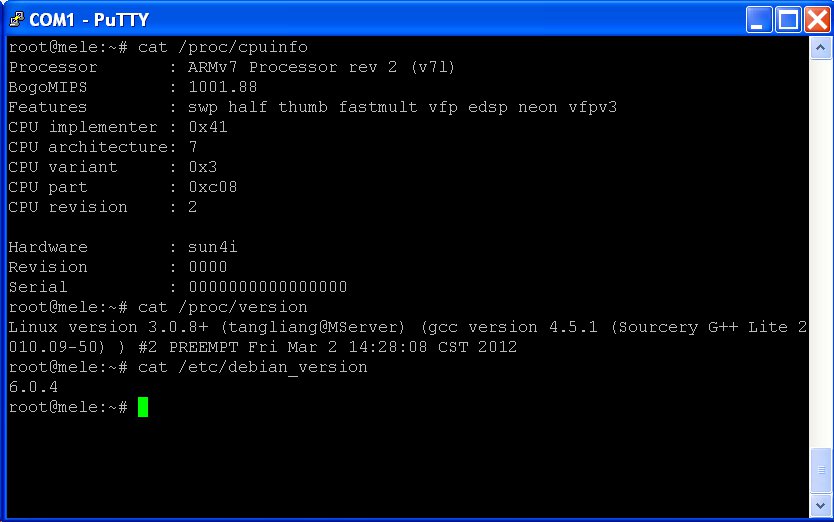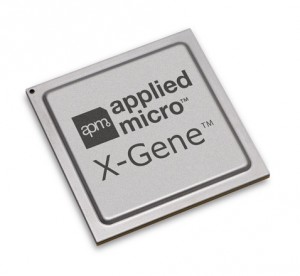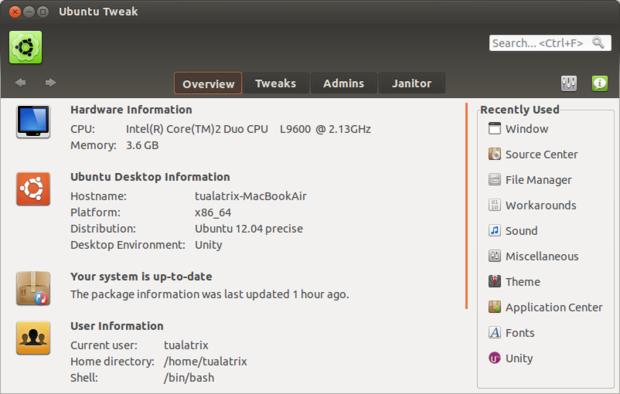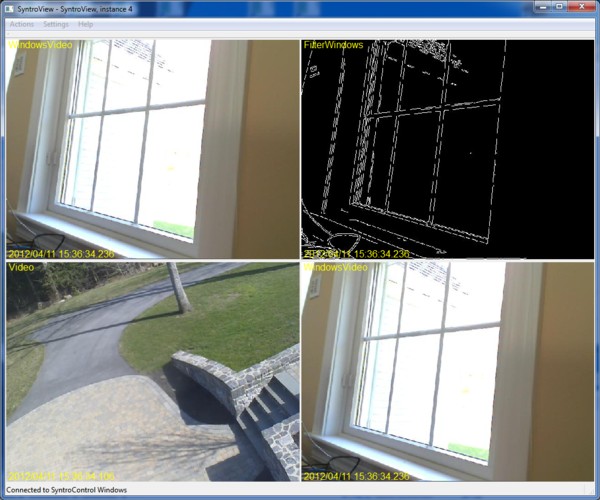If you are using Ubuntu 10.04 LTS and were expecting Ubuntu 12.04 LTS to be available in the Upgrade Manager, you were wrong. Well, at least I was wrong… Canonical won’t make it available via the Upgrade Manager in the first release, but only in July with Ubuntu 12.04.1 release, and the company recommends that most LTS users wait until then before upgrading to 12.04. But if you can’t possibly wait that long, you can run: do-release-upgrade -d or update-manager -d to upgrade from Ubuntu 10.04 (Lucid Lynx) to Ubuntu 12.04 (aka Precise Pangolin). The first command will run in the terminal, the second will start the Update Manager and allow you to select “New Ubuntu release ‘12.04’ is available”. For details on why you should NOT upgrade yet, see http://askubuntu.com/questions/125825/upgrading-lts-to-lts-server-why-wait-for-the-first-point-release. The first time I tried to upgrade I had the following errors: Could not calculate the upgrade An unresolvable […]
How to Create Your Own Debian / Ubuntu Image for Mele A1000 (AllWinner A10 Based STB)
Developers working on AllWinner A10 have released an Ubuntu 10.04 LTS SD card image (4GB) for the Mele A1000. I’ll show how you can create your own Debian or Ubuntu image based on this image for any size of SD Card using Debian 6.0 (Squeeze) and the recent Ubuntu 12.04 (Precise Pangolin) as example. The current image is not perfect, for example Ethernet doesn’t work (but you can still get network connectivity with WiFi), the NAND flash can not be accessed, the system does not appear to be very stable when running X and a few more issues. But this will be fixed by the developer community over time. First download the SD card image wget http://hands.com/~lkcl/mele-ubuntu-lucid.img.lzma Install 7z (if you don’t have it yet) and decompress the file: sudo apt-get install p7zip-full 7z x mele-ubuntu-lucid.img.lzma The decompressed size is 4008706048, which might be larger than your 4GB SD Card […]
AppliedMicro Unveils ARMv8 64-bit Apache 2 Implementation for X-Gene SoC
Last year, Applied Micro announced their Gene-X 64-bit ARMv8 core at ARM Techcon 2011, and showed a minimal demo based on Xilinx Virtex-6 FPGA booting Linux ARM 64-bit to the command line. Since then, the company has made progress and just announced the availability of an Apache 2 web server implementation on their 64-bit ARMv8 X-Gene Server-on-Chip. This is the very first implementation of a fully-functional server platform running a real-world application on 64-bit ARM-based processor, said Vinay Ravuri, Vice President and General Manager of Processor Products at AppliedMicro. The platform is now capable of running a full LAMP (Linux, Apache, MySQL and PHP) software stack. Back in 2011, the company announced ARMv8 support for Linux would be developed by Redhat and be available in Fedora. This 64-bit ARM web server implementation enable OEMs, ODMs, Cloud Service Providers, Independent Software Vendors and other development partners to conduct early stage performance benchmarking and […]
Archos Arnova G3 Tablets: Arnova 10b G3 and Arnova 9 G3
Archos has announced (actually just listed them on their website) the third generation low cost Arnova tablets based on Rockchip RK2918 (Cortex A8 @ 1GHz) with 1 GB RAM and running Android 4.0 (ICS) with Arnova 10b G3 and Arnova 9 G3 Here are the specifications of the devices: CPU • Rockchip RK2918 (Cortex A8) @ 1 GHz System Memory • 1GB RAM Operating system • ANDROID 4.0 Capacity • Flash memory: 8 GB or 4 GB • Extendable via micro SDHC Slot Display characteristics • Arnova 10b G3 – 10.1” Resistive Dual Touch screen, TFT LCD (Resolution : 1024 x 600) • Arnova 9 G3 – 9.7″ Capacitive 5 points MultiTouch Screen with IPS Technology (Resolution: 1024 x 768) Video Playback • H.264 up to 1080p resolution – 30 fps • MPEG-4– 30 fps • Container formats: .avi .mp4 ,mkv, .mov, and .flv Audio Playback • MP3, WAV, APE, […]
Linaro 12.04 Release with Kernel 3.4 and Android 4.0.4
Linaro has just released version 12.04 based on Linux Kernel 3.4-rc3 and Android 4.0.4_r1.1. This release already provides Ubuntu 12.04 LTS images for Pandaboard, Snowball, Origen and Versatile Express, and all community builds (nano, ALIP…) are based on Ubuntu Precise Pangolin as well. This should provide significant performance boosted compared to Ubuntu 11.10 thanks to hard-float support and other optimization (See Phoronix Benchmarks). A lot of work since to have gone into big.LITTLE implementation, HTML5 is now supported in Firefox, and it seems Linaro is still working on ARMv6 as they provided VP8 optimizations and improved the toolchain for this architecture. Here are the highlights of the release: Android Finished Snowball Multimedia enablement. Updated all builds to AOSP ICS 4.0.4_r1.1. Switched all builds to 4.7. Updated base toolchain components MPFR and GMP. Ported htop to Android. Ported stressapptest to Android for big.LITTLE Testing. Implemented and ran weekly big.LITTLE tests. Integrated […]
Ubuntu Tweak 0.7.0 for Ubuntu 12.04 Precise Pangolin
Ubuntu 12.04 – codenamed Precise Pangolin – will be officially released later today, you may even already run the latest Ubuntu 12.04 beta 2. One day before the official Ubuntu 12.04 release, Ubuntu Tweak 0.7.0 (aka Precise Tweak) has been made available for those that want to customize and customize their system with options not available by defaults. This tool can also be used with older versions as well, but it has some Ubuntu 12.04 specific settings, e.g. turn HUD on/off, tweak login settings for Ubuntu 12.04 and more. This new version of Ubuntu Tweak can change parameters specific to Ubuntu 12.04. For example, you can disable HUD (Head-Up Display) interface or turn on/off shortcuts hits overlay. You can also customize the launcher. You can also change login settings and personalize LightDM. There is also a QuickLists Editor. Additionally, Ubuntu Tweak features an Application Center to find and install popular […]
Olimex A13-OLinuXino Could Become a Proper Raspberry Pi Alternative
Olimex recently announced they produced the first 10 prototypes of iMX233-OLinuXino Development Board, a low-end Linux development board that will cost 30 Euros, with specifications inferior to the Raspberry Pi. They have now announced their plan to design A13-OLinuxXino development board based on the new AllWinner A13 chipset, a strip down version of AllWinner A10 without HDMI nor SATA. Thanks to the low cost of AllWinner A13 (5 USD for very large orders / 10 USD in smaller quantities), Olimex plans to sell the new A13-OLinuxXino board for the same price as the iMX233-OLinuXino but with a faster 1GHz Cortex A8 processor and 256 or 512 MB RAM. I assume their will be 2 versions as well, the MINI for 29,95 Euros and the MAXI version with 2 more USB 2.0 host ports and 10/100Mbit Ethernet for 44.95 Euros. This board could be a very interesting alternative to the Raspberry […]
Syntro 0.5.0 Cross-platform C++ Framework for Distributed Sensor Networks
Pansenti has announced the first release of Syntro (version 0.5.0), a cross-platform framework for creating distributed sensor networks. Syntro is an open source C++ library and a set of applications based on Qt 4.7. The source code is released under the GPL license. Syntro has been developed on the following platforms: Linux Fedora 16 Ubuntu >= 10.10 Mac OS 10.7 Windows 7 Syntro can run on x86 targets as well as ARM based Pandabord, Beagleboard and Beaglebone development boards (Ubuntu only). Syntro is based on the following “SyntroCore” applications: SyntroExec – Start up and management of Syntro apps. SyntroControl – Message switching and multicast distribution. SyntroStore – Multicast stream capture. SyntroCFS – Cloud file storage. SyntroReplay – Multicast stream generation. SyntroLog – Network-wide logging. Some demo applications using one or more webcams and the OpenCV library are also available: SyntroCamera – Capture a stream from a video device (such as […]








